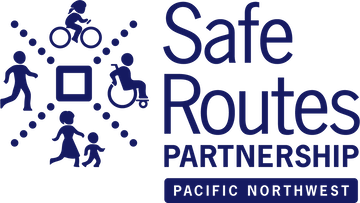We are now about three months away from Metro’s referral of a regional investment in transportation in 2020 – Metro is widely expected to make that referral this May for the November 2020 ballot. The Task Force and Metro Council recently gave soft approval of most of the projects, and through our work with partners in the Getting There Together Coalition, the measure is increasingly making progress on racial equity, safety, and transit access through proposed transportation investments.
One of the outstanding questions that remains is what "Youth Fare Affordability" program will look like in the measure. We consider expansion of the existing highly popular and successful Portland Public Schools YouthPass program as a model for the region.
YouthPass is a program that currently gives Portland Public School (PPS) students free access to Trimet transit service in lieu of a traditional school bus system. The program was originally offered only to low-income students, but was expanded in 2009 thanks to organizing from young Black women at Sisters in Action for Power to include all PPS students, and has recently expanded to other school districts in the Portland Metro area due to the advocacy of the Youth Environmental Justice Alliance (YEJA), Multnomah Youth Commission (MYC), and OPAL Environmental Justice Oregon. This is a critical program that is building up the next generation of transit riders, while reducing congestion and carbon pollution across the greater Portland region: approximately 200,000 youth 18 and under are eligible for YouthPass.
YouthPass currently provides nearly 12,500 Portland Public Schools high school students with free access to TriMet service during the school year. Many youth outside of PPS would benefit tremendously with access to YouthPass through a regional program: For example, of the 1,151 students surveyed at Reynolds High School, 622 reported that the cost of a youth fare is a major or occasional factor in preventing them from using TriMet, and more than 56% surveyed said that a free access to transit would positively affect their school attendance. Furthermore, 85% of Metro Area High Schools have one or more transit lines running directly outside the school campus or have transit lines within ½ mile of the campus.
Why Regional Universal YouthPass
Youth Transportation Needs - Each day, more than 200,000 youth in the region need to be able to get to and from school, visit family and friends, attend community events and meetings, receive medical care, get to their jobs, visit libraries, participate in extracurriculars, sports and more
Supports Regional Climate Goals - Getting more people on transit is one of the easiest ways to reduce our carbon emissions from transportation
Transit Ridership - Regional Universal YouthPass will turn around the trend of declining transit ridership, and help build future transit riders
Elements of Regional Universal YouthPass
Available to all youth 18 and under in the Metro region
Available to all youth independent of financial, social, or school status
Available to all youth year round to support youth travel needs in every season
How Regional Universal YouthPass Works
Regional Universal YouthPass builds on existing PPS YouthPass program and fund, and incorporates TriMet existing commitments of 1/3 Student Pass Program & High School Pass Program funding
Regional transportation measure provides funding for all youth in Middle & High School to receive YouthPass eligibility through school ID/HOP integration
Regional transportation measure provides contingency funding for youth out-of-school to receive YouthPass through family verification, low-income fare eligibility, or other pilot program to be established
Cost of Regional Universal YouthPass program is based on ridership levels to reflect lost fare revenue, rather than the nominal cost of a monthly Youth HOP. This is determined by card actual use as verified through HOP taps, similar to Universal Annual Pass Program for employers
Take Action
March 4: The next opportunity to speak up in favor of Regional Universal YouthPass is at Metro's next Transportation Funding Task Force Meeting.
RSVP on Facebook for updates and talking points or contact info@gettingtheretogether.org.


